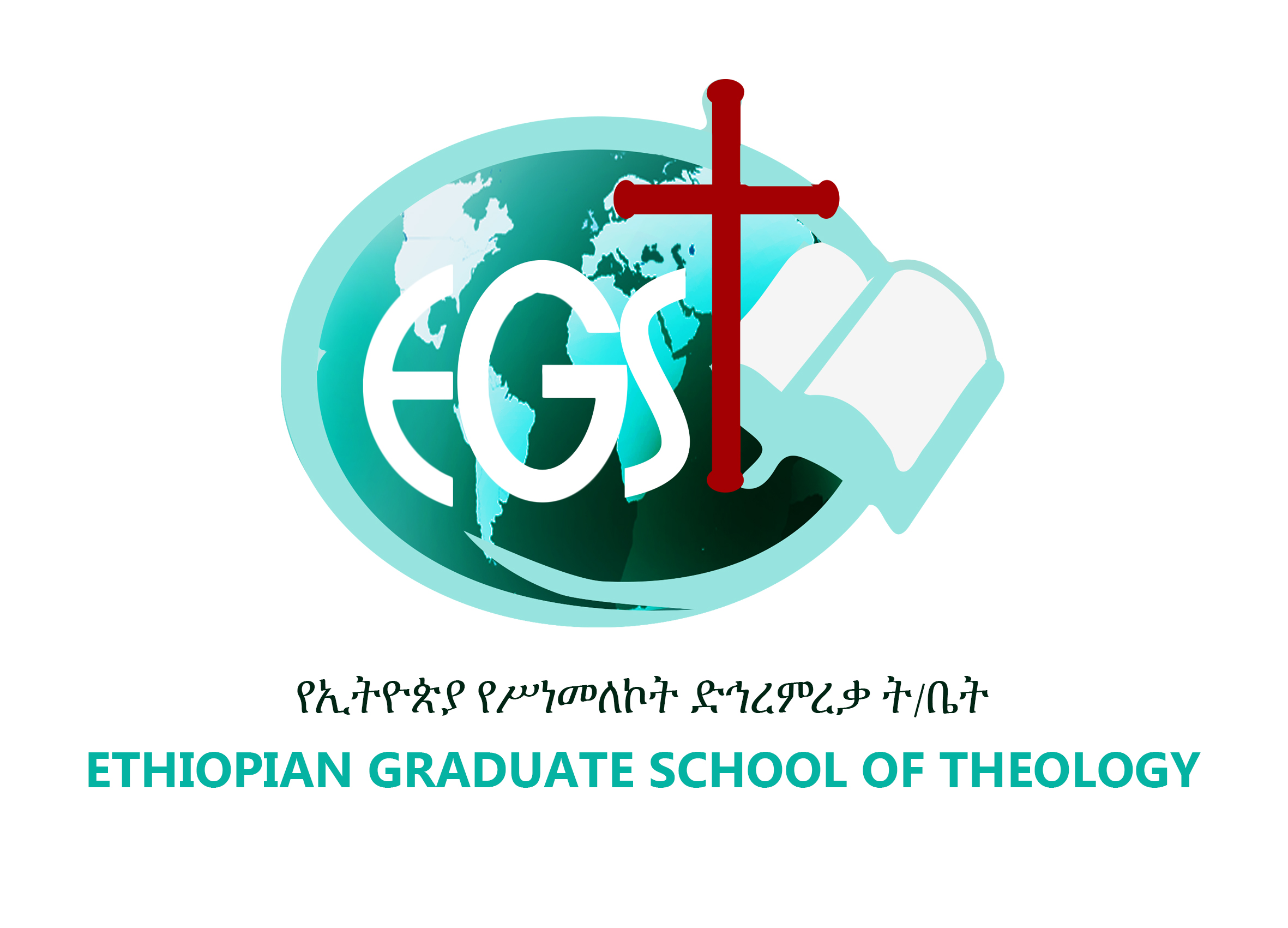Friday Oct 4, 2019 ( 5-7:30pm)
Moderator Dr. Theodros A. Teklu
Welcoming speech Rev. Dr. Misgana Mathewos
Introduction Dr. Theodros A. Teklu
Lecture Prof. Elias Bongunba
Discussion Dr. Theodros Assefa
Next workshop will be Nov 9, 2019
Please save the date
Ethiopian Graduate School of Theology
P.O.BOX 24934 Code 1000
Addis Ababa, Ethiopia
Tel: +251-11-320-4591/+251-11-371-5588
Revamping Political Theology in Africa Engaging Youths on Human dignity
Prof. Elias Kifon Bongmaba
Ethiopian Graduate School of Theology (EGST)
Center for Christianity and Society
Academic Lecture
4th October 2019
Revamping Political Theology in Africa
Engaging Youths on Human dignity
Elias Kifon Bongmba
In this paper, I discuss political theology in Africa to argue that faith communities could start a new dialogue on faith and politics by engaging young people on key themes in politics and theology. In the first major section of the paper, I highlight briefly the journey from church state relations to political theology. In the next section, I discuss the Political Theology of Henry Okullu of Kenya. While I support most of his insights, I argue that we need to go further and introduce perspectives that reflect religious pluralism. Second, theologians and activist must be weary of the Babylonian Captivity of the church by politicians who embrace religion only to promote their own personal agendas. Third, the absolutization of a Christian perspective continues to trigger fundamental legal questions because since such absolutism runs the risk of promoting discrimination and put some members of the political community at risk.
In the second section, I argue that reinvigorating political theology calls for a new concern and collaboration with the youths of Africa on faith and politics. I offer preliminary remarks on rethinking political theology today. I argue that such theology must be open to a pluralistic dialogue. Second it must explore new themes. Third, it should be grounded in interdisciplinary research and analysis.
In the third section of the paper, I argue that in addition to big themes like democracy, human rights, economic rights, political theology should return to a neglected theme such as human dignity and study it to reinvigorate political theology for our time. This section of the presentation is grounded on The Punta Del Este Declaration on Human Dignity for Everyone Everywhere (PDED) that was adopted at a conference in Punta Del Este, Uruguay December 2-4 2918. First I argue that for people of faith, dignity is grounded in the imago dei. Second, dignity is a core concept in African thought. Third, prioritizing human dignity opens the door for the work of justice and a commitment to respect human dignity will strengthen the efforts of theologians to build a consensus that could work to promote wellbeing.
It is important that I recognize the limitations to the conversation. First, this is a transdisciplinary discussion and I will borrow freely from research done in Africa in the social sciences and the humanities. In fact, the bulk of the literature as we shall see later on church state relations in Africa has been written by social scientists. Second, one must recognize that it is challenging to think and write on Africa for many reasons. It is a large continent, with a complex geographical landscape, and its geographical space. Yet Africans have always worked with a sense that they share a lot in common because they occupy and share this vast geography. Third, while our challenges require a robust political theology, I do not imply that things work perfectly in other parts of the world. The recent interest in political theology and all other fields such as public religion indicates that scholars want to raise new questions about what religion and, for our purpose, theology can bring to the table on the subject of public life. For example, there is a robust debate on secularization and one might be tempted to think that it has limited the focus on the political dimensions of theology and religious life, but that is not the case because we have seen an abiding interest in the public nature of religion even when scholars thought Christendom was waning.

